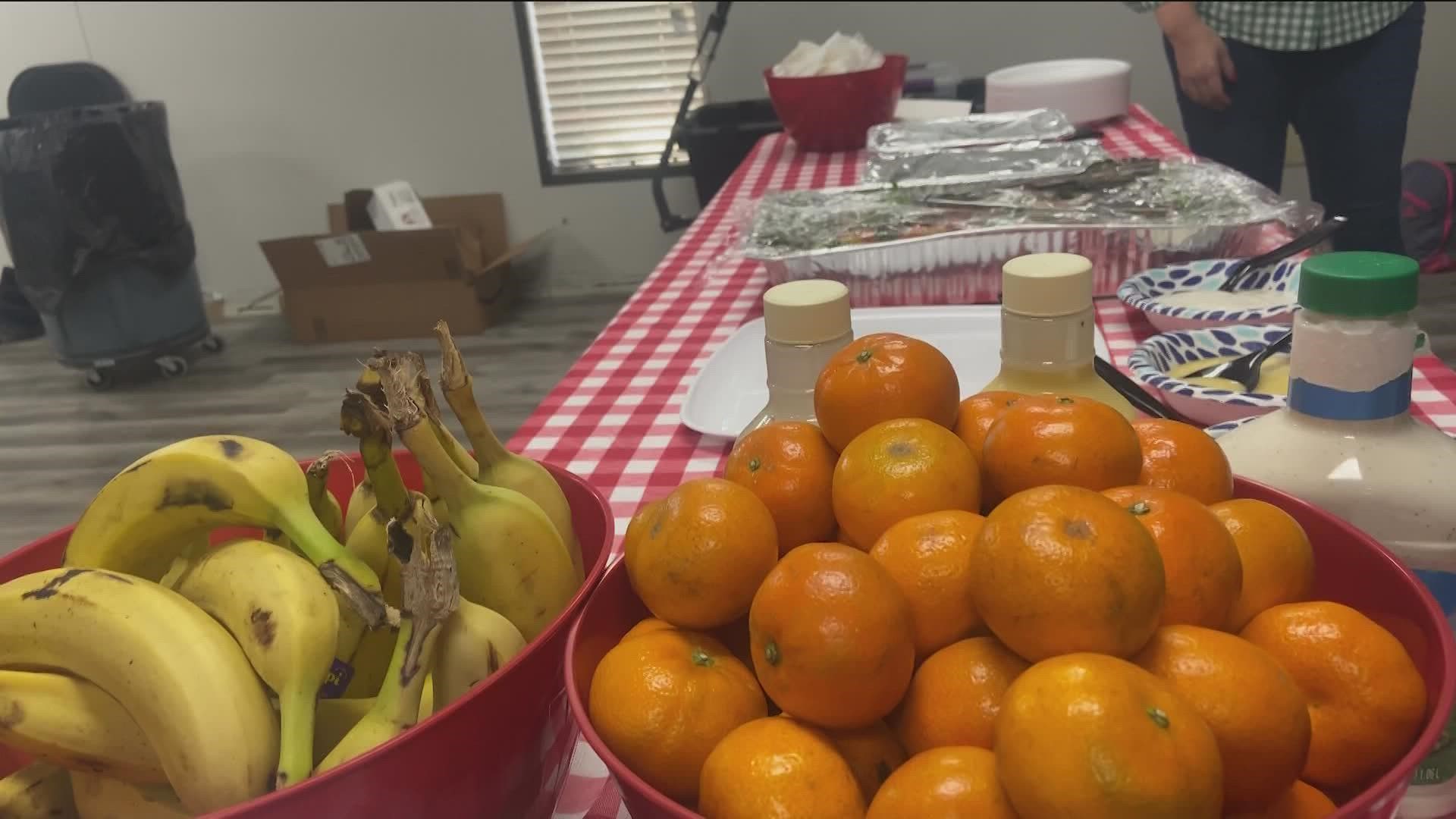AUSTIN, Texas — While Austin is home to legendary breakfast tacos and farm-to-table restaurants, affordability and access to food remain a challenge for many.
The State of the Food System report found that food insecurity in Travis County is still up since the start of the COVID-19 pandemic. The pandemic caused massive disruptions in all industries, down to the way food is produced, locally and nationally.
As recovery from the effects of the pandemic continues, over 14.4% of the Travis County population remains food insecure. In 2020, when the pandemic first hit, that number was also elevated to 14.4%.
The biggest difference with 2020, according to the report, is that "in March and April of 2020, there was a 51.7% increase in overall call volume to 2-1-1, and a 160.5% increase in calls related to food needs." It is clear people were in need when the pandemic first began.
But experts worry why, two years later, numbers remain high.
Despite all of the local food Texas produces, only 0.06% of what's consumed is local. According to the report, this results in a higher carbon footprint and food that is less fresh – and more expensive.
Edwin Marty, the food policy manager for the City of Austin, said there is little infrastructure to support farming and ranching.
"And by infrastructure, I mean processing facilities and aggregation facilities," Marty said. "Places that will make it easier for farmers to get the food that they produced or the animals that they've grown processed and stored in a way that it makes it easier to sell over time."
Because of this, Marty said much of the food produced is exported to other places, processed and exported back to Texas, driving up the costs.
Urban farms and community gardens are allowed everywhere in Austin with a permit, but barriers prevent low-income communities and communities of color from participating, according to the report.
"Grim things that were institutionalized a long time ago are still affecting communities across mainly East Austin, southeast Austin," Marty said. "So, those communities often don't have access to a full-service grocery store for many reasons. And it's difficult to encourage the for-profit grocery stores to build in those neighborhoods."
The City has signed a contract with a local nonprofit to hopefully build a community-owned food retail store to improve food access. It said it will continue to work to make sure everyone has equal access to food.
Marty said this new report is considered the first step in creating the "Austin Food Plan." The plan will work to create a more equitable and sustainable food system. If you'd like to get involved in creating the plan, here is the interest form.
PEOPLE ARE ALSO READING:

